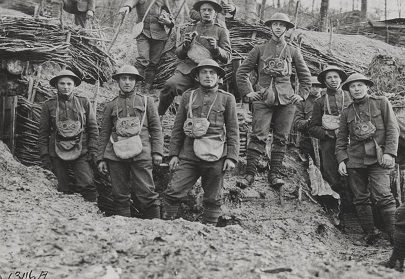Note: All submitted events must be approved before they appear in the calendar.


Profs and Pints presents: “Was Fighting World War I a Grave Mistake?” with Michael Kazin, professor of history at Georgetown University, co-editor of Dissent magazine, and author of War Against War: The American Fight for Peace, 1914-1918.
November 11th marks the centennial of the armistice that ended World War I. Historians continue to debate whether that conflict could have been prevented, but for the United States it was indisputably a war of choice. Germany neither threatened a trans-Atlantic attack nor had the ability to mount one. And while Woodrow Wilson and the government’s propaganda agency portrayed the Kaiser’s regime as a cruel autocracy, that regime could not raise an army without the approval of the Reichstag, an elected legislature. It was unclear that Imperial Germany was significantly morally inferior to the three empires it was fighting—the British, the French, and, until March of 1917, the realm of the Tsar.
We cannot know what impact continued U.S. neutrality would have had; by its nature, counter-factual history is a speculative enterprise. But we do know the consequences of the U.S. decision to join the Allied powers in the spring of 1917.
At home, the decision to go to war also led inexorably to a campaign of repression of individual rights far greater than any that had occurred before. Newspapers were banned for making the slightest criticisms of government policy. Critics of the war were jailed for speaking out against it. Vigilantes freely assaulted people who failed to echo the hyper-patriotic gospel. The fear of “seditious” radicals and aliens would lead, in the 1920s, to the post-war Red Scare and the racist immigration laws.
Over in Europe, the American Expeditionary Force played a highly significant part in compelling the Germans to sue for peace in the fall of 1918. But the victory won by the U.S. and its allies led to an even greater tragedy, with a deeply flawed peace treaty helping to spur bloody revolutions and sow the seeds of the Second World War, a far deadlier global conflict.
Professor Kazin will analyze arguments made for and against U.S. entry into World War I at the time and in the century since. You’ll gain a much greater understanding of the conflict and its impact.
Tickets available at https://profsandpintskazin.brownpapertickets.com